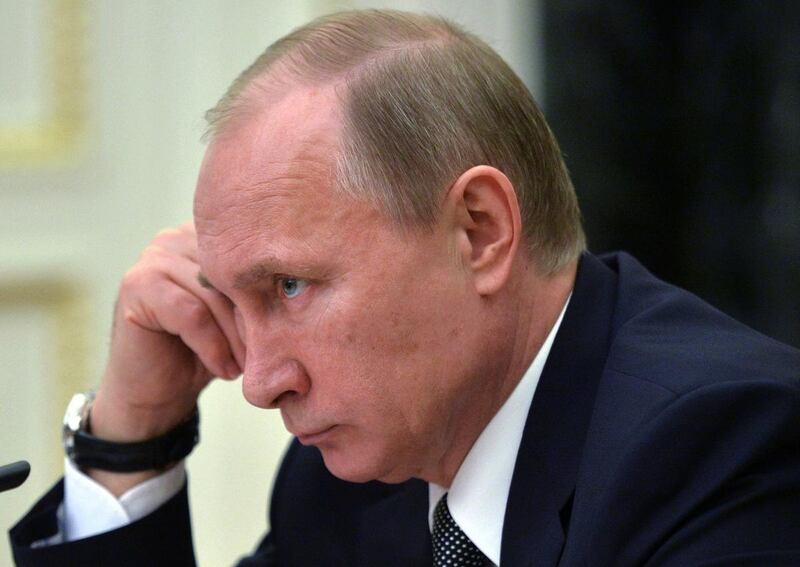Twenty-five years ago this month, I was standing in a hotel conference room in Leningrad watching on television as the Lithuanian parliament voted to leave the Soviet Union. This was an exciting moment for me as I observed the Soviet Union begin to crumble. Indeed, by the end of the following year, the Soviet Union was gone, an event the world applauded. The Russians did not applaud, and Vladimir Putin has become their dictator-hero to put the Soviet Union (or at least Greater Russia) back together again.
Those of us following these momentous events 25 years ago hoped that Russia would become a Western-style democracy with free and fair elections, competitive political parties and protections for freedoms all people should be able to enjoy. Alas, that has not happened. Russia has descended into a cesspool of corruption, authoritarianism and war-mongering. Putin has presided over this ugly descent.
The shattered dream of a democratic Russia became clear last month when a prominent dissident leader, Boris Nemtsov, was gunned down on a Moscow street within sight of the Kremlin. Under President Boris Yeltsin, Nemtsov served as First Deputy Prime Minister of Russia. He was considered a reformer who eschewed the corruption that swirled among Russian government officials.
The Russian police have arrested five people allegedly connected to the murder. The background of these suspects is illuminating. Two of them are former police officials in Chechnya. The leader of Chechnya is a close ally of Russian President Vladimir Putin.
After the murder, the president’s office issued a press statement condemning the killing and promising a thorough search for the killers. Nevertheless, it is almost certain that responsibility for this killing lies primarily at the door of Putin. Opposition leaders rightly fear that any government investigation of Nemtsov’s murder will be a whitewash.
Since his rise to power in 2000, the Russian president has instituted a reign of suppression of free speech, co-optation of the press, jailing of dissidents and even the elimination of opponents. Nemtsov joins a growing list of opponents to Putin who have been mysteriously killed: Alexander Litvinenko, a former KGB agent who defected to London was poisoned in 2006. Anna Politkovskaya, an opposition journalist, was killed outside her Moscow apartment the same year. Others have been given long prison terms by Putin’s government because they criticized the government.
Americans’ approach to Putin’s actions may be a collective yawn. Some may suggest that there is nothing to be done. Others may argue the United States should mind its own business.
But Putin is not to be dismissed. In 2008, he sent Russian troops into Georgia and they remain today in two Georgian provinces that Russia claims are now independent. Last year, Russian troops invaded Ukraine, sponsored a rigged referendum in Crimea and then annexed Crimea back into Russia. Russian troops also occupy parts of eastern Ukraine and have urged the formation of a separate, Russian-backed government in eastern Ukraine.
All of these actions met with Western protests and some economic sanctions, but nothing the West, including the United States, has done deters Putin from his territorial grabs. Indeed, Putin is challenging the other nations to stop him, not only in acquiring new territory in former Soviet republics but also in his violation of other nations’ territories. Russian ships are trolling the waters around the Baltic republics (Estonia, Lithuania and Latvia) much more than before. Last year, the Swedes discovered a Russian submarine within their territorial waters.
Putin is rattling his sword to intimidate his neighbors as well as western European nations and the United States. He is signaling that he is the head of a mighty power that will use its military strength to invade or harass other nations. This ploy helps him with nationalist sentiment at home, but it also makes it more likely that smaller nations on Russia’s border will think twice about rejecting Russia’s demands.
Any notions that Putin would take Russia towards a peaceful democracy are gone. Instead, the reality is that the United States and the European Community must be ready to stand against Putin to stop his aggressiveness. Otherwise, he will continue to be a world menace.
Richard Davis is a professor of political science at Brigham Young University. His opinions do not necessarily reflect those of BYU.


